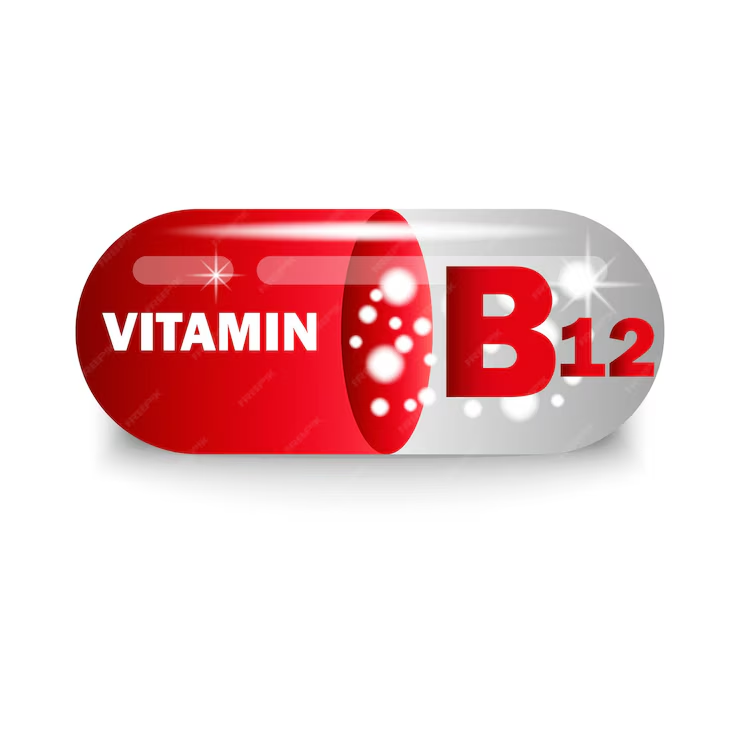
Introduction
Vitamin B12 plays a crucial role in maintaining overall health and well-being, yet deficiencies in this essential nutrient are more common than many realize. The Vitamin B12 lab test serves as a vital tool in diagnosing deficiencies and guiding appropriate treatment. In this blog post, we’ll delve into the intricacies of the Vitamin B12 lab test, exploring its purpose, interpretation, and significance in healthcare.
Understanding Vitamin B12
Before delving into the lab test, it’s essential to grasp the significance of Vitamin B12 in the body. Also known as cobalamin, Vitamin B12 is crucial for various physiological processes, including the formation of red blood cells, neurological function, DNA synthesis, and energy production. Deficiencies in Vitamin B12 can lead to a myriad of symptoms, ranging from fatigue and weakness to neurological impairments.
Indications For Vitamin B12 Lab Testing
The Vitamin B12 lab test is typically ordered for individuals exhibiting symptoms suggestive of a deficiency or those at risk of inadequate intake or absorption of the vitamin. Symptoms that may prompt a healthcare provider to request a Vitamin B12 test include fatigue, weakness, pale skin, numbness or tingling in extremities, cognitive difficulties, and unexplained neurological symptoms.
Vitamin B12 Lab Test
The Vitamin B12 lab test measures the concentration of Vitamin B12 in the blood. It is typically performed through a blood sample obtained via venipuncture. There are several methods used to measure Vitamin B12 levels, including immunoassays and chromatography. Results are reported in picograms per milliliter (pg/mL) or picomoles per liter (pmol/L).
Interpreting Vitamin B12 Levels
Interpreting Vitamin B12 levels requires consideration of various factors, including the individual’s age, clinical symptoms, and underlying medical conditions. In general, Vitamin B12 levels below 200 pg/mL are indicative of deficiency, while levels between 200-300 pg/mL may suggest marginal deficiency or insufficiency.
Clinical Implications And Management
Once Vitamin B12 deficiency is confirmed, appropriate management strategies can be implemented to address the underlying cause and replenish Vitamin B12 stores. Treatment typically involves oral or intramuscular Vitamin B12 supplementation, depending on the severity of deficiency and the individual’s ability to absorb the vitamin.
Symptoms
Vitamin B12 deficiency can manifest in various symptoms,and these can vary in severity and presentation from person to person. Here are some common symptoms associated with Vitamin B12 deficiency:-
- Fatigue: Persistent tiredness and lack of energy, even after adequate rest, are hallmark symptoms of Vitamin B12 deficiency.
- Weakness:Muscle weakness and a general sense of physical weakness can occur with Vitamin B12 deficiency.
- Pale or Jaundiced Skin:A deficiency in Vitamin B12 can lead to changes in skin tone, including pallor or jaundice (yellowing of the skin and eyes).
- Dizziness or Light-headedness:Feeling dizzy or lightheaded, particularly when standing up quickly, can be a symptom of Vitamin B12 deficiency.
- Shortness of Breath: Vitamin B12 deficiency can impair the production of red blood cells, leading to a condition known as megaloblastic anemia, which can cause shortness of breath and difficulty breathing.
- Cognitive Difficulties:Cognitive symptoms may include difficulty concentrating, memory problems, brain fog, confusion, or even mood changes like depression or irritability.
- Numbness and Tingling:Nerve damage resulting from Vitamin B12 deficiency can lead to sensations of numbness, tingling, or pins and needles, typically in the hands and feet.
- Balance and Coordination Issues:Vitamin B12 deficiency can affect the nervous system, leading to problems with balance, coordination, and gait.
- Vision Changes: Blurred or disturbed vision can occur due to neurological damage associated with Vitamin B12 deficiency.
- Digestive Issues:Some individuals may experience digestive symptoms such as nausea, diarrhea, constipation, or loss of appetite.
- Mouth Ulcers or Glossitis: Vitamin B12 deficiency can cause changes in the oral mucosa, leading to mouth ulcers, a swollen tongue (glossitis), or a burning sensation in the mouth.